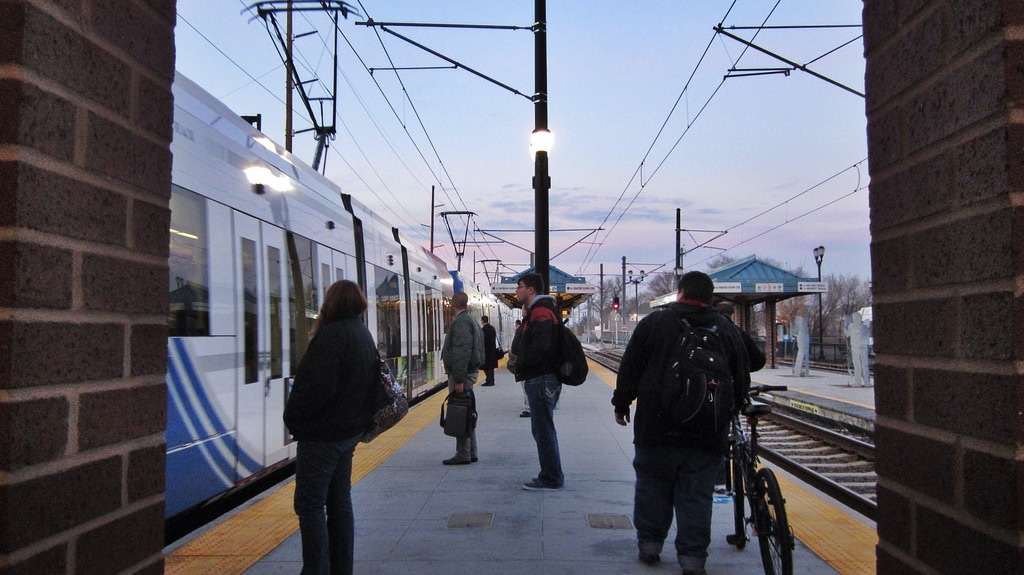| “A reputation once broken may possibly be repaired, but the world will always keep their eyes on the spot where the crack was.” — Joseph Hall, author The Utah Transit Authority is all too aware of what United Airlines seems to be newly discovering. A lifetime of correct choices can’t make up for a few bad ones that get a lot of publicity. |
| | Or, as I’ve asked more than one editor through the years who lectured me over a misspelling, how come you never bothered to compliment me on all the words I got right? It’s human nature to dwell on misdeeds, which is why we still refer to a miserly person in casual conversation as a “Scrooge,” conveniently ignoring how, by the end of the book, Scrooge is a kind and generous person. Jerry Benson, the president and CEO of UTA, wondered aloud this week if there is a ratio for determining how many good deeds it takes to overcome a tarnished reputation. “Is it 10-to-1 you have to earn that back? Probably, at least,” he told the combined editorial boards of KSL and the Deseret News. “It’s going to take demonstrated trustworthiness, over a long period of time, to change that relationship.” Maybe that and a little more. The Utah Transit Authority has to get through all the bad news, first. And because people rarely devote the energy necessary to follow what local governments and quasi-governmental organizations do, every piece of bad news reinforces their cynicism. Deseret News opinion editor Hal Boyd calls this, “reputational inertia.” It’s an inertia UTA will have trouble stemming, at least for a while. It started in earnest three years ago when a legislative performance audit found all sorts of problems, from failing to collect $10 million owed by a developer to — most important of all for taxpayers — exorbitant salaries and bonuses for top executives. Board members and managers often voted or took actions on matters that were conflicts of interest, because UTA required them only to self-report these. Since then, the faces have changed. New policies are in place. Conflicts must be reported and reviewed independently. The agency is more transparent and open about what it does. And yet the past is not really passed. Earlier this month, federal prosecutors announced a grand jury had returned a 12-count indictment against former UTA board member Charles Diehl, charging him with filing a false declaration and concealing assets related to UTA when he filed for bankruptcy. The feds said they won’t prosecute UTA itself, but they will assign a monitor to the agency for at least three years to make sure it is conducting itself properly. Oh, and the criminal investigation will continue, which means more bad news may be coming. UTA is trying to put a good face on this. Board Chairman Robert McKinley said the feds’ decision not to prosecute UTA is a “stamp of approval” on the changes it has made. He and others tout UTA as one of the best transit agencies in the country. But progress on this public relations front will be as hard as pulling a train through mud by hand. Salt Lake County voters rejected a small tax increase in 2015 to build more UTA projects, a sign of how important it is for UTA to overcome the trust deficit. “I understand this inertia problem with our reputation,” McKinley said. “But what’s interesting to me is, when I sit down and I say to people what is it exactly that you’re concerned about, it’s something that occurred eight years ago, 10 years ago. It’s nothing current, and I wish I knew how to solve that problem.” While he searches for answers, the United Airlines case offers a bit of perspective. As far as I know, UTA hasn’t dragged a paying customer off an overbooked train for refusing to surrender a seat. But a lot of taxpayers see that as analogous to how they were forced to pay for a portion of the problem years ago. Yes, it will take years to overcome that feeling. In the meantime, other public entities should take note |


 RSS Feed
RSS Feed

